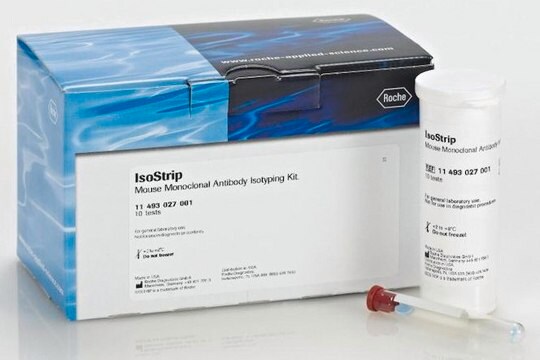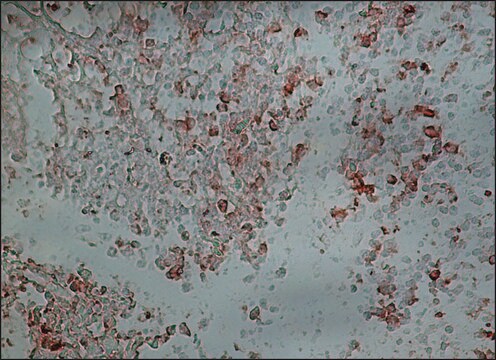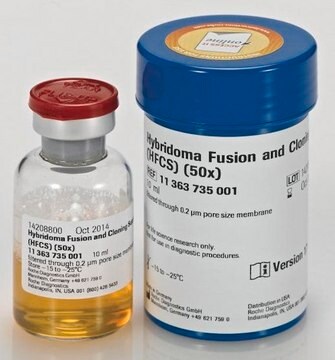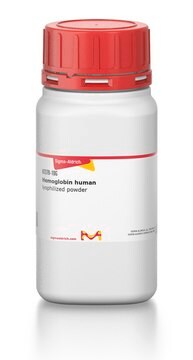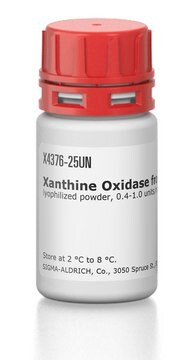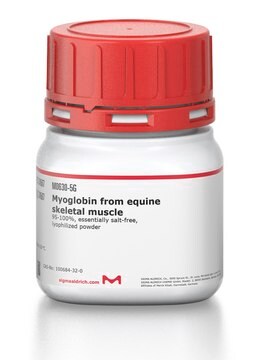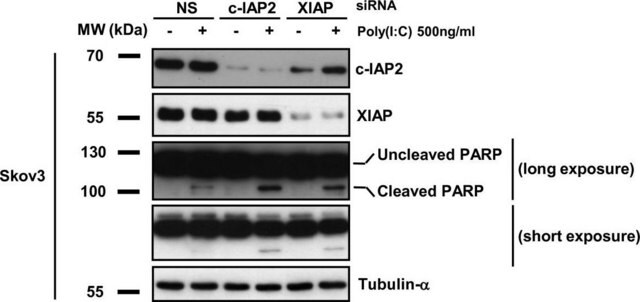ISO2
Mouse Monoclonal Antibody Isotyping Reagents
sufficient for 1000 tests (clones) (by ELISA), sufficient for 40 tests (clones) (by immunodiffusion, ODD)
Synonym(s):
Mouse Antibody Isotyping Kit
Sign Into View Organizational & Contract Pricing
All Photos(1)
About This Item
Recommended Products
usage
sufficient for 1000 tests (clones) (by ELISA)
sufficient for 40 tests (clones) (by immunodiffusion, ODD)
Quality Level
shipped in
wet ice
storage temp.
2-8°C
Looking for similar products? Visit Product Comparison Guide
General description
The Mouse Monoclonal Antibody Isotyping Reagents enable qualitative isotype determination of mouse monoclonal antibosies derived from hybridoma supernatant, ascites fluid or purified forms.
Specificity
ISO-2 contains 0.2 mL vials of subclass specific antibodies to all four mouse IgG subclasses, IgA, and IgM. Directions are included for using these reagents in ELISA and Ouchterlony assays to determine the subclass of monoclonal antibodies in ascites, culture supernatants, or purified preparations. Additional reagents may be required, such as conjugates for ELISA assays or agarose and buffer components for Ouchterlony assays.
Application
Mouse Monoclonal Antibody Isotyping Reagents has been used in monoclonal antibody isotype determination using enzyme-linked immunosorbent assay (ELISA). It may be used in Ouchterlony immunodiffusion assays.
Determination of the subclass of a monoclonal antibody is helpful for characterization of the antibody, for choosing detection reagents, and for deciding on a purification scheme.
Features and Benefits
- May be used in a variety of assay formats
- Suitable for all antibody forms
- Determines all mouse IgG subclasses, IgA, and IgM
Kit Components Only
Product No.
Description
- goat antisera to mouse IgA .2 mL
- goat antisera to mouse IgG3 .2 mL
- goat antisera to mouse IgG1 .2 mL
- goat antisera to mouse IgG2a .2 mL
- goat antisera to mouse IgG2b .2 mL
- goat antisera to mouse IgM .2 mL
related product
Product No.
Description
Pricing
Storage Class Code
10 - Combustible liquids
Certificates of Analysis (COA)
Search for Certificates of Analysis (COA) by entering the products Lot/Batch Number. Lot and Batch Numbers can be found on a product’s label following the words ‘Lot’ or ‘Batch’.
Already Own This Product?
Find documentation for the products that you have recently purchased in the Document Library.
Customers Also Viewed
Violetta Sączyńska et al.
Virology journal, 15(1), 13-13 (2018-01-18)
The highly pathogenic avian influenza viruses of the H5 subtype, such as the H5N1 viral strains or the novel H5N8 and H5N2 reassortants, are of both veterinary and public health concern worldwide. To combat these viruses, monoclonal antibodies (mAbs) against
Selvaraj Pavulraj et al.
Veterinary microbiology, 210, 188-196 (2017-11-07)
Equine influenza viruses (EIVs) are responsible for acute contagious respiratory infection in equines and the disease remains a major threat for equine population throughout the world despite vaccination strategies in place. The present study was aimed to assess the suitability
Sapna Halder et al.
Cell research, 15(9), 739-744 (2005-10-11)
Rheumatoid synovial fibroblasts were used as an immunogen to produce monoclonal antibodies selected for their reactivity with stromal cell antigens. Mice were immunised with low passage whole cell preparations and the subsequent hybridomas were screened by immunohistochemistry on rheumatoid synovium
Jorma Hinkula et al.
Vaccines, 7(3) (2019-07-19)
Background: Vaccination is commonly used to prevent and control influenza infection in humans. However, improvements in the ease of delivery and strength of immunogenicity could markedly improve herd immunity. The aim of this pre-clinical study is to test the potential
Generation and characterization of novel stromal specific antibodies
Halder S, et al.
Cell Research, 15(9), 739-739 (2005)
Our team of scientists has experience in all areas of research including Life Science, Material Science, Chemical Synthesis, Chromatography, Analytical and many others.
Contact Technical Service